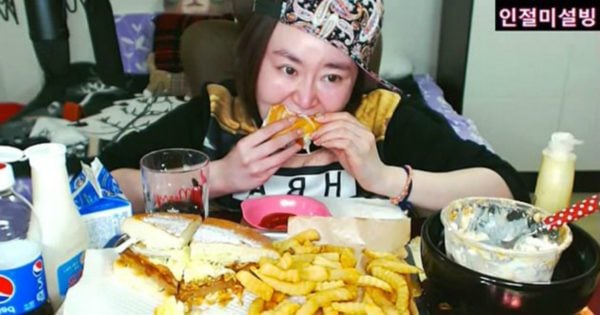Skye Wheatley, 22-year-old former Big Brother contestant, uploaded a video to her YouTube channel this week titled “10,000 calorie challenge”.
In kilojoules, that’s 41, 840 – more than five times the recommended daily intake for an adult woman.
Wheatley filmed herself over 24 hours eating noodles, McDonalds, Starbursts, Oreo Easter eggs, a block of chocolate, a container of Nutella, a packet of Oreos, Reese’s pieces, V Energy drinks, a frappe, cordial, pistachios and a calippo.
The video goes for 25 minutes, and includes “body updates”, where Wheatley examines herself side on, horrified by her increasingly bloated stomach.
